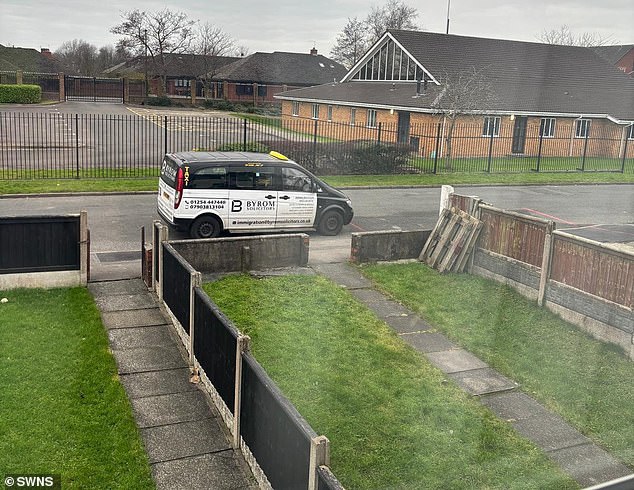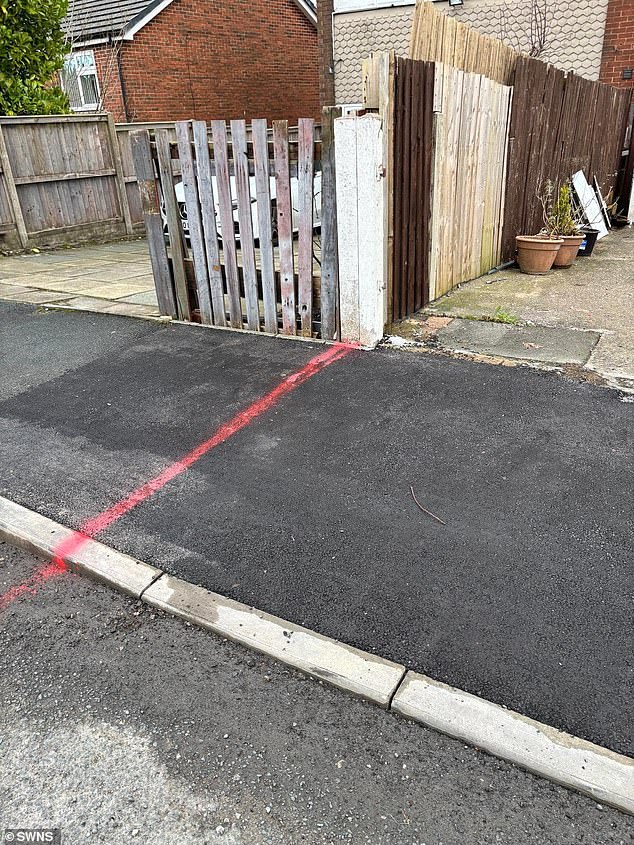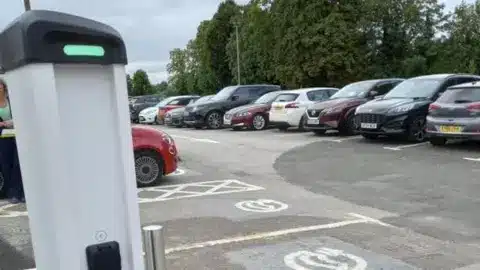Taxi Driver Faces Major Legal Bill After Dispute Over Neighbours Parking Outside His Home Escalates


Councillor and Taxi Driver Fined Nearly £3,000 After Illegally Painting Red Lines to Stop Neighbours Parking Outside His Blackburn Home
A local councillor and taxi driver from Blackburn has found himself at the centre of a public row and nearly £3,000 out of pocket after taking road traffic matters into his own hands. Altaf 'Tiger' Patel, who represents the Little Harwood and Daisyfield ward, was seen manually painting a 27-foot red line outside his property on St Thomas Street, Audley, in a bid to deter motorists from blocking access to his driveway.
The incident has sparked debate across the community, prompting questions about legality, public trust in elected officials, and the growing tensions surrounding residential parking across UK towns and cities.

Attempt to Prevent Parking Sparks Local Uproar
Mr Patel, 55, who also works as a private hire taxi driver, claimed he resorted to painting the line himself due to ongoing frustrations caused by people repeatedly parking across the entrance to his driveway.
“I need access to my driveway at all times,” Mr Patel told reporters. “This isn’t just about convenience—it's essential for my livelihood as a taxi driver. My daughter also recently passed her test and has a car that needs access to the driveway too.”
According to Mr Patel, the red lines he painted were meant to be a temporary measure—serving as a visual guide for council workers expected to carry out official road markings. “It was a genuine mistake,” he said. “I wasn’t trying to bypass the law. I just wanted to ensure the markings were done in the correct place, especially if I wasn’t home when the workers arrived.”
However, residents and fellow councillors were quick to criticise the move, with many seeing it as an abuse of power.

Neighbours and Councillors Condemn the Action
The red lines remained in place for only four days before Blackburn with Darwen Borough Council stepped in, issuing a formal warning and instructing Mr Patel to remove them immediately. He was later filmed scraping off the paint from the public road surface outside his property.
Councillor Amin Kapadia, representing the adjacent Audley and Queen’s Park ward, expressed serious concerns. “Actions like these erode public trust in elected representatives. This behaviour is not only inappropriate but also potentially hazardous,” he said. “The red lines were not sanctioned by the council and posed a safety risk by misrepresenting official highway markings.”
Other residents voiced similar disapproval. One local woman, who asked to remain anonymous, said, “Nobody—regardless of whether they are a councillor or not—should be painting unauthorised markings on public roads. It sets a dangerous precedent.”
Council Investigation and Legal Consequences
Following the incident, Blackburn with Darwen Council conducted a full review. A spokesperson confirmed that Mr Patel had since applied for the appropriate permissions and paid for legal works to be carried out, including the installation of a dropped kerb and the painting of an official H-bar marking.
H-bar lines are advisory white road markings painted across the width of a driveway. They signal to other motorists that they should not block access, though they are not legally enforceable without additional signage or enforcement measures.
Carmel Foster-Devine, Head of Highways and Transport at Blackburn with Darwen Borough Council, confirmed the outcome of their investigation. “Painting red lines on a public highway without permission is a highways offence,” she said. “Councillor Patel was formally instructed to remove the markings. He has since complied, applied for the correct alterations, and paid for them in full—just as any resident would be required to.”

The Cost of a 'Genuine Mistake'
The total cost incurred by Mr Patel for correcting the situation amounted to £2,956, which included the council's fees for installing a legal dropped kerb and an official H-bar line.
The red lines, painted back in December 2024, were only recently replaced by the approved markings, highlighting the delays and costs that can result from bypassing proper channels.
Mr Patel insists there was no intent to misuse his role as a councillor. “This was never about being above the law,” he said. “It was simply an attempt to address a long-standing issue with parking outside my home.”
Despite his explanation, calls have been made for further accountability. Some constituents believe that a councillor should lead by example and adhere strictly to public regulations—particularly when it involves the use of publicly owned space.
Parking Pressures in UK Residential Areas
This incident touches on a wider issue that many across the UK can relate to—residential parking pressures. With more households owning multiple vehicles and urban space at a premium, disputes over parking have become increasingly common.
From blocked driveways to disputes over dropped kerbs, local authorities are frequently called upon to mediate tensions. However, unauthorised actions such as Mr Patel’s are strongly discouraged and can lead to significant penalties, both financial and reputational.
Experts advise residents who encounter persistent parking problems to apply through official council channels for the installation of H-bar markings, dropped kerbs, or even to request new traffic enforcement measures if necessary.
What Can Residents Learn from This?
This case serves as a cautionary tale about the importance of following proper procedures. While parking frustrations are real and often valid, taking unlawful action can escalate matters, lead to public backlash, and incur significant fines.
Residents are encouraged to contact their local authority for guidance on legal solutions. Most councils offer a formal process for requesting driveway protection markings and can advise on appropriate enforcement measures.
While Mr Patel has now corrected his actions and paid the appropriate fees, the incident has raised valid questions about transparency, the role of elected officials, and the need for community-wide conversations around urban planning and parking regulations.
As local populations grow and urban areas become denser, fair and legal parking practices will continue to be a hot topic—making it all the more important for residents and councillors alike to lead by example.
Posted on 15 May 2025







